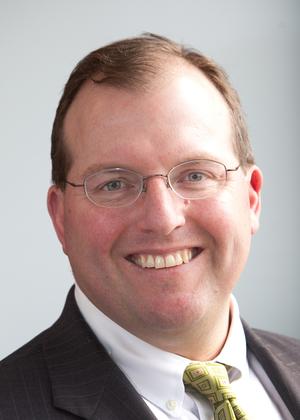Local Prosecutor Appointed to Investigate Allegations of of Clergy Wrongdoing
By Maureen Boyle
Enterprise
February 9, 2010
http://www.enterprisenews.com/news/x1673538207/Church-job-tries-to-stop-sins-of-the-past
BRAINTREE — For years, Mark Dunderdale dealt with sexual assault and other crime victims as a prosecutor in the office of the Plymouth County district attorney. Now he will use that expertise to help the Archdiocese of Boston investigate allegations of wrongdoing or impropriety by clergy or other diocesan workers.
Dunderdale, the founding director of the archdiocese's new Office of Professional Standards and Oversight, said the creation of that office is the most recent move by the archdiocese to make sure problems of the past — such as ignoring allegations of sexual abuse by priests — aren't repeated.
 |
| Mark Dunderdale is the founding director of the Boston archdiocese’s new Office of Professional Standards and Oversight. |
"The intent is to have professional investigations that are fair and professionally done so we never repeat the sins of the past," said Dunderdale, 42, who officially started the job on Jan. 1.
The creation of the new office is part of the ongoing effort by the church to protect children and make sure clergy and other church workers are held to high standards, said the Rev. Richard M. Erikson, vicar general and moderator of the curia of the Boston archdiocese. Dunderdale will report to him.
"It is an indication of our commitment to protect people and to have all people who are ministering to the public to live by our highest and professional standards," said Erikson, the second in command in the archdiocese. "He is building on the work that has been done already."
The Catholic Church, nationally and in Boston, has been rocked by nearly two decades of allegations that priests accused of abusing children were moved from parish to unsuspecting parish without any public action or acknowledgement of their crimes.
Some of the former priests – including James Porter, convicted of molesting 28 children, many in the Fall River diocese – were later prosecuted and sent to prison. More than $140 million has already been spent in civil settlements in Massachusetts alone.
Erikson said hiring Dunderdale, coupled with other programs since the early 2000s, will help the church move forward. "We also count on his experience and wisdom to help better any of our policies," he said.
The Boston archdiocese is not alone in making charges to address the clergy sex-abuse issues, said Tom Plante, editor of the book "Bless Me Father For I have Sinned: Perspectives on Sexual Abuse Committed by Roman Catholic Priests."
Plante, a psychology professor at Santa Clara University in California, has done more than 500 evaluations for the church on people who were considering a religious vocation and said the church now is taking no chances on who gets into seminaries for training to be a priest.
"We have been hyper vigilant for any types of risk factors," he said.
But taking steps to investigate any allegations of wrongdoing as well as setting up policies to prevent problems is also a key move, Plante said.
"We have a tremendous amount of new policies and procedures and research, all going in the right direction," Plante said.
Erikson said Dunderdale was picked because of his legal expertise and track record.
"He is a great person, a wonderful Catholic, husband and father," said Erikson, who first met Dunderdale last year when he interviewed for the position.
If there is an allegation of misconduct involving a child, the matter will immediately be referred to civil authorities, Erikson and Dunderdale said.
"Let's say the authorities say, 'Yes, we are gong to act on it,' we then allow the civil course to take its course," Erikson said. "We don't want in any way to obstruct that investigation."
Dunderdale shared that sentiment.
"There is a very succinct policy we have — any allegations of abuse of a child, we immediately notify law enforcement. That is done right away. The first step is the notification of law enforcement," Dunderdale said.
If civil authorities notify the church they are not pursuing the matter, either because the statute of limitations has expired or other reasons, Dunderdale would then take over the church investigation into the matter, Erikson said.
"The statute of limitations does not matter if there is a credible allegation," Erikson said. "We are going to have our own investigation."
Any original material on these pages is copyright © BishopAccountability.org 2004. Reproduce freely with attribution.